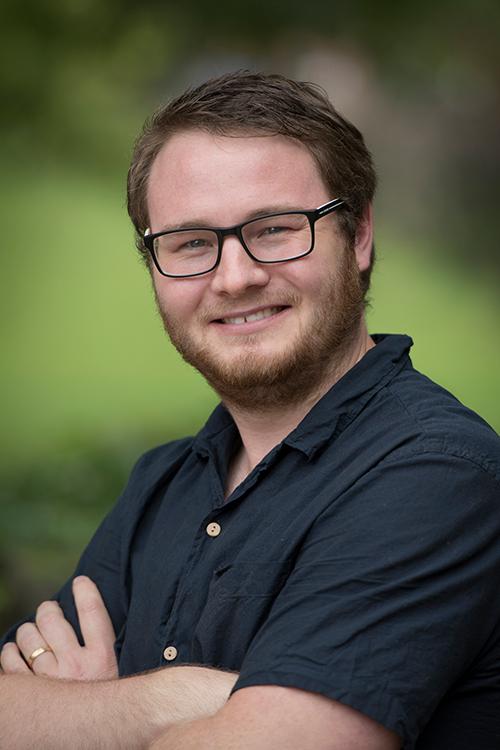Alliance expert: Dr. David Huyben

Maximizing the growth and production of commercially significant fishes
Assistant Professor, Department of Animal Biosciences, Ontario Agricultural College, University of Guelph
Dr. David Huyben’s research supports sustainable growth of Ontario’s growing $98-million aquaculture sector by helping fish farmers and feed producers maximize the healthy growth and production of commercially significant fishes.
Research focus in the agri-food sector
Huyben’s research focus is on fish husbandry, sustainable ingredients, nutritional requirements, fish microbiome and the interplay among these areas.
He studies farmed fish species including rainbow trout and lake whitefish.
Support from the Alliance
- Tier 1 operating funding
- Tier 2 access to research centres
- Knowledge Translation and Transfer (KTT)
- Access to the ARIO owned property Ontario Aquaculture Research Centre
Make an Alliance connection
- Email David: huybend@uoguelph.ca
- Visit the Huyben Lab website

Research that's making an impact
Nutrition and ingredient research helps fish feed producers optimize diets for Ontario farmed fish and improves the health and productivity of commercially farmed fish.
Fish microbiome research will help determine the impact of gut bacteria and microorganisms on fish growth, productivity and immune response to disease threats, improving animal health and industry resilience. Referring to the gut, Huyben says, “In my view, it’s an untapped organ. The gut microbes produce many vitamins and fatty acids lacking in our diet. A healthy gut would improve immunity and performance of animals.”
Photo: Dr. David Huyben and his team of undergraduate and graduate students at the Ontario Aquaculture Association conference (March 2023) in Orillia, Ont. L to R: Huyben, M.Sc. student Junyu Zhang, M.Sc. student Rebecca Lawson, M.Sc. student Maddie Borland, B.Sc. student Sam Bezner, M.Sc. student Carmi Riesenbach and M.Sc. student Cody Anderson.
Sector impact
Huyben’s close relationships with industry mean research results are communicated to sector partners and integrated efficiently, supporting the nearly 4,000 tonnes of farmed fish produced annually in Ontario and protecting the industry’s $98-million economic contribution.*
For example, research into lake whitefish growth at the Ontario Aquaculture Research Centre (OARC) showed a high-protein, high-fat diet (differing from the standard rainbow trout diet) helped improve health and growth. These results led an Ontario fish feed supplier to create a diet specific to whitefish that will be released in 2024 by Bluewater Feed (Sharpe Farm Supplies).
These results help feed producers optimize their feeds and helps fish farmers improve fish health and resilience, all balancing cost, sustainability and fish health.

Highlight qualified personnel training and education
Huyben’s lab has supported the work of seven graduate students since 2020.
Huyben intentionally includes and trains graduate students in all aspects of aquaculture research and production. “I take students to Manitoulin to visit farms,” he says, referring to the area with the highest concentration of net-based aquaculture production in Ontario. “Aquaculture is a highly regulated industry. I try to get students involved and to explore several career paths related to government, farming, feed production and animal health.”
Students have opportunities to present their work at gatherings such as the annual Ontario Aquaculture Association conference held in Orillia each March and attend events to network in the tight-knit aquaculture community.
Photo: Dr. David Huyben and M.Sc. student Junyu Zhang at the Ontario Aquaculture Research Centre.
Collaboration with industry and academic partners
Ontario aquaculture is a model of successful collaboration among researchers, government, industry and Indigenous groups that improves the sustainability, growth and resilience of the industry.
External collaborators complement the fruitful internal collaborations facilitated by the concentrated aquaculture expertise at U of G. “In terms of aquaculture, U of G is number one,” Huyben says. He co-chairs the U of G Aquaculture Centre, which has provided aquaculture information to industry and the public since 1988.
Select research collaborations include:
- Ontario feed and fish farming companies Sharpe Farm Supplies Ltd./Bluewater and Alltech
- Government agencies: Canadian Food Inspection Agency and Agriculture and Agri-Food Canada
- Université Laval, McGill University and Dalhousie University researchers
- U of G researchers such as OARC manager Dr. Marcia Chiasson and faculty in the College of Biological Science, School of Environmental Sciences, and Department of Animal Biosciences
See a list of collaborations on his University website profile: David Huyben.

Future directions
In fall 2023, Huyben assisted with an Ontario Agri-Food Innovation Alliance Knowledge Translation and Transfer (KTT) grant led by School of Environmental Sciences researcher Dr. Neil Rooney, which will guide Huyben’s research priorities for the next three to five years. The funding supported two sustainable aquaculture workshops held with researchers, producers, Indigenous communities and cottagers in Little Current on Manitoulin Island and at U of G. A publication about these workshops will be released soon.
Huyben’s first M.Sc. student, Rebecca Lawson, successfully defended her thesis on lake whitefish nutrition and gut microbes in February 2024 and will soon publish her thesis. M.Sc. student Carmi Riesenbach will defend his thesis on feeding insects to rainbow trout in May 2024.
Two M.Sc. students, Junyu Zhang and Cody Anderson, presented their research findings at the Ontario Aquaculture conference in Orillia (March 2024) and Aquaculture Canada in Charlottetown, PEI (June 2024). Huyben will also attend the Aquaculture Europe conference in Copenhagen, Denmark (August 2024).
Huyben recruited a new Ph.D. candidate and a new M.Sc. student, Sam Bezner, both starting in May 2024, based on an NSERC Discovery Grant and an Alliance Tier 1 grant.
Photo: Huyben and B.Sc. student Sam Bezner at the Ontario Aquaculture Research Centre.
Learn more
- U of G Aquaculture Centre information hub
- Huyben Lab email subscription
- Follow on X @DavidHuyben
- Dr. David Huyben’s ResearchGate profile
- Dr. David Huyben on LinkedIn
- Ontario Aquaculture Research Centre
Media
- Organic acids and essential oils boost gut health for rainbow trout - International Aquafeed magazine
*Source: 2022 Aquastats

